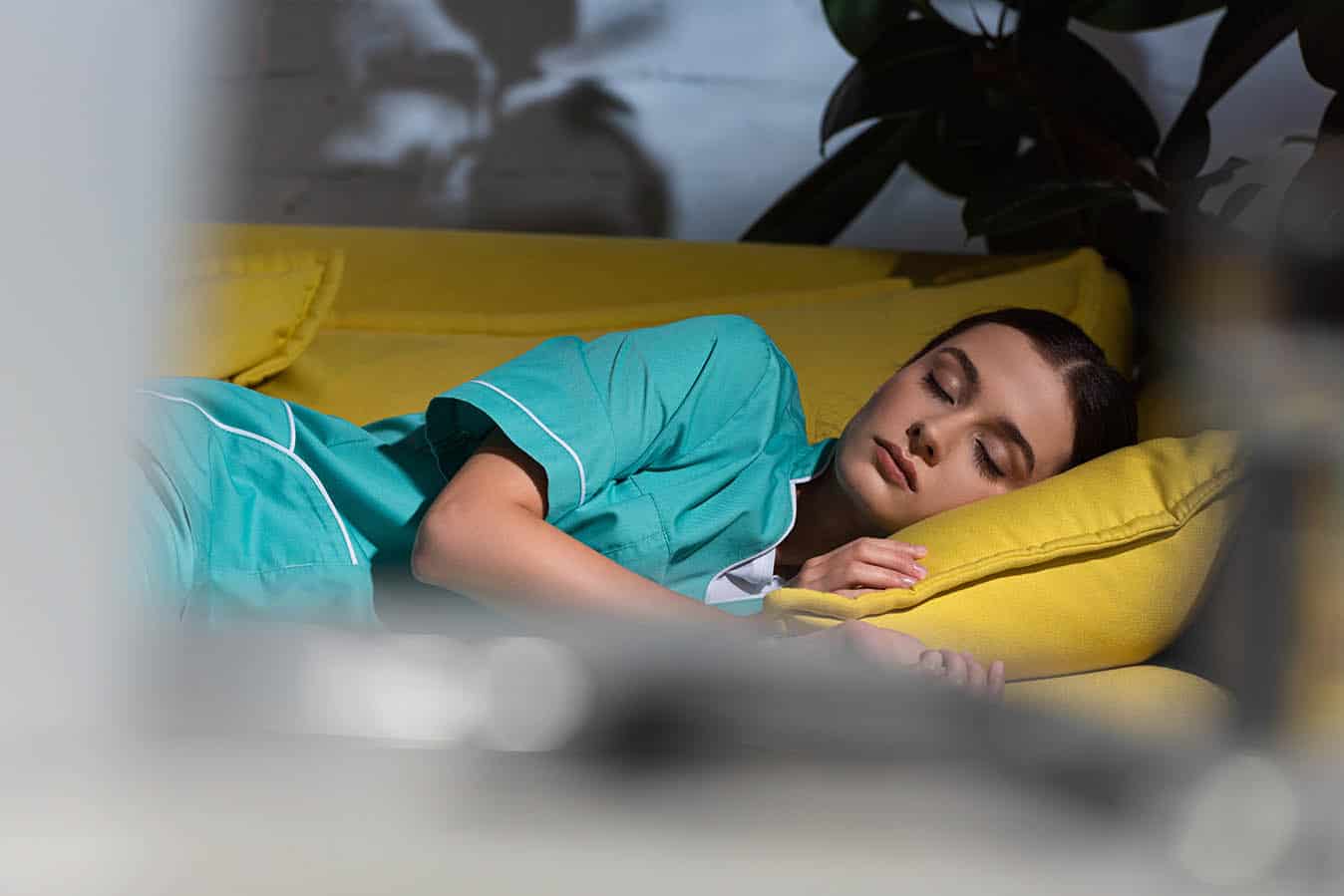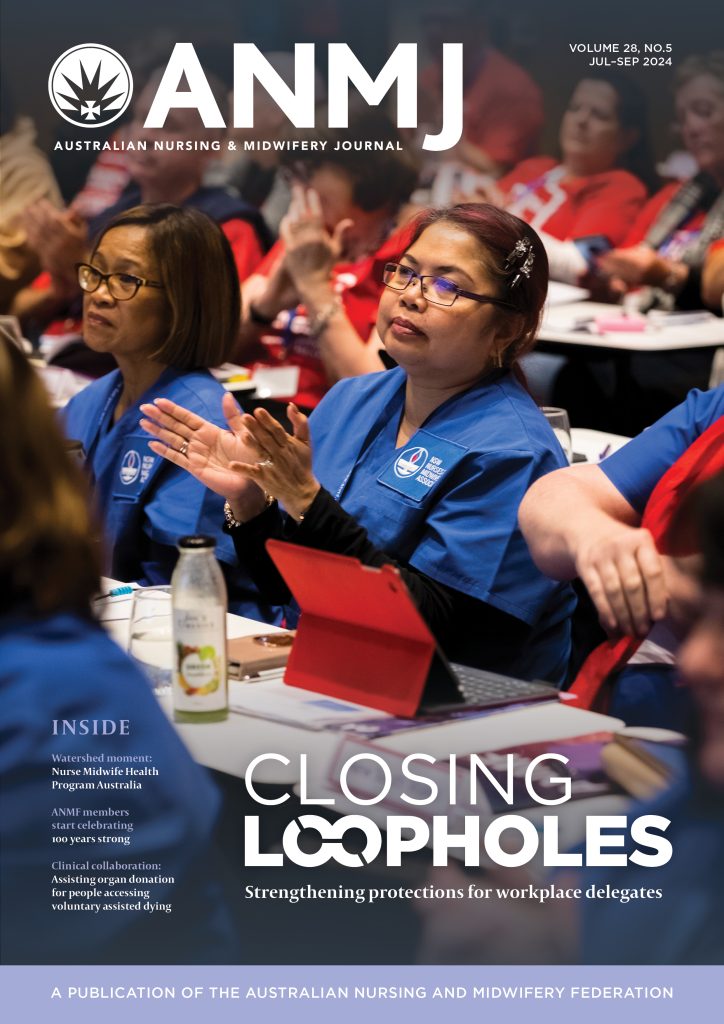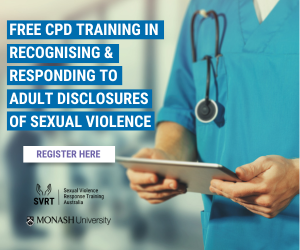To nap or not to nap on night shift – does it reduce fatigue? That is the question nurses at the Royal Children’s Hospital (RCH) in Melbourne asked in trialling the effects of scheduled sleeping during night shift.
Staff from the RCH’s Medical Short Stay Unit presented their findings at the Australian College of Nursing’s National Nursing Forum held in Hobart.
“Well-rested nurses are safe and efficient nurses. Many nurses find napping on night duty as an effective mechanism to decrease drowsiness or fatigue,” said presenter Patrick Prunster.
The trial was aimed to promote staff wellbeing and safety and reshape ward culture.
“Staff were aware that fatigue is a particular issue but staff tend not to take all of their scheduled breaks on night duty,” Patrick said.
While 6% of nurses never took all their breaks on day shift, a whopping 45% never took all their breaks on night shift, according to an in-house unit survey undertaken pre-trial (with a 55% response rate). Despite this, 90% of nurses considered breaks were important to patient care.
Alarmingly but perhaps unsurprisingly, 97% reported they considered they were unsafe driving home after night shift.
“The survey found nurses not taking breaks – this was an issue of nurses’ wellbeing and which has an impact on patient care.”
The staff identified six studies of napping on night shift; and found napping improved levels of fatigue in five of the six studies.
The definition of what constituted a nap varied in the studies – from 15 minutes to two hours.
“From the findings we found it was feasible that napping can reduce sleepiness and drowsiness driving,” Patrick said.
The RCH 24-bed acute medical care inpatient unit is staffed with a nurse to patient ratio of 4:1 during the day and 6:1 at night. There are 56 permanent RNs on 12 hour shifts.
The staff instigated a night duty nap planner and scheduled times for taking breaks and/or naps. This involved a ‘1 am huddle’ following a 12 midnight ward round overview. Staff took allocated 30 minute breaks and those who chose to nap used an old mattress in an effective sleeping space.
Barriers to nurses taking naps on night shift included: perpetuating a stigma of ‘laziness’ that accompanies night shift; the feeling that patient acuity and work load can make it difficult to take breaks; and patient load where colleagues were on break.
The trial highlighted a focus on staff wellbeing and occupational health and safety, Patrick said.
“Nurses need to prioritise their breaks. There was an inability for some nurses to delegate tasks.”
About 50% of staff completed a follow up survey six months post-trial. The findings recommended the need to:
- Liaise with ANUMs about the most effective way to schedule breaks for night duty.
- To develop a method where breaks can be applied.
- Nurses to be empowered to take scheduled breaks that their Enterprise Bargaining Agreement (EBA) entitles them to.
- Taking a scheduled nap during the course of a night shift improves nurses’ wellbeing.
“We want nurses to take their breaks. Policy must include adequate provision for staff to rest,” Patrick said.










9 Responses
I’ve worked night shifts for over four years. On the occasions I haven’t been able to nap I have felt unsafe driving home. One time I found that my car had drifted from the left lane, across the right lane and into the emergency lane heading towards the median wall at 100kmph!
The hospital at which I work provides large staff areas with plenty of seating for breaks, these must be great during the day as I can imagine friends meeting and chatting around the many tables. At night they are crap. The lights come on with movement and the two ‘sofas’ are short, hard and (it seems) purposely designed to prevent comfort, so even if you do manage to drop off, the moment someone else has a break the lights come on and you know it will take 20 minutes of not movement before they go off!
I nap sitting upright on an office chair (not great for my back) in an unused office or treatment room, wearing an eye mask. I ensure the room is left as I found it, I have never returned late from my break and usually feel like I’ve had a lot more than the 20-30 minutes sleep I’ve actually had.
Napping should be a personal choice and I would like to see provisions made for those who prefer to spend their breaks with their eyes shut.
I am now entering my 30th year as an RN and one of the best advances had been the recognition that staff need to take their scheduled breaks day or night, but especially on a night shift. In the public system in QLD, Nurses working a 12 hour night shift are entitled to 80 minutes of break time
(2x30min and 2 x 10 min). Very few nurses especially those who are in senior positions (team leaders for example), I know take that time out whether it be through guilt or fear of being dubbed “lazy and unreasonable” or often, due to the lack of other senior staff on duty. What I have found is that if I get to have an 1 hour continuous break then I am able to have around 40 minutes sleep time, which certainly helps me to function better and to provide a much better informed and coherent morning handover to the oncoming day staff.
I have most of my nursing career working night shift I must at times I am fatigued and need to rest on night shift but I have discovered over years I feel just as fatigued doing a day shift also! Working ever changing rosters fatigue me more then working night shift! A good example of this was after working five night shifts I was given two nights off one my sleep night , night two early to bed to start a early shift at the end of this day shift that I was fatigue for a had a minor car accident driving home I fell asleep at the red light and rolled into the car in front of me . I believe there are day or night people and as such nurses preference should be taken into account plas family needs Qld health needs to be more family friendly! Myself I am a night person who has trouble sleeping at night but can sleep well during the day !
Despite not loving night duty, I did it for many years, with a great team…. with breaks. Then I changed my work place and naps on breaks was shunned and I hated night duty. The short naps really helped to reduce fatigue and get me through the night. I have since stopped doing night duty choosing only day jobs which limits where I can work. How a staff member chooses to take their shift should be personal choice, not dictated!
I work in an incredibly busy ED that is a major trauma centre in Sydney. Despite the acuity and patient load, what makes this job the best I’ve ever had is that management are extremely strict with ensuring that everyone takes ALL of their schedules breaks on time, day or night.
This compares with a previous ward I worked at which stated they didn’t have resources on nights to swap for breaks on night shift so no breaks were ever given.
My neighbor does police nightshifts. He says it affects his abilities including driving. Very similar to being jet lagged. I did 20 minute power naps at home but never at work. Anymore than that ,then I woke up not refreshed but very weary. I’m sure workplaces could incorporate power naps into shiftwork schedules.
At our hospital it is a well established culture to have an hours sleep. At the start of the shift we pick our time that suits with our workload and the break is a priority.
Many nurse, if they had a choice, would not do nightshift as they just dont fuction well so the hour sleep really helps them.
I love nightshifts and prefer not to sleep but still get an hour away to revive.
I was a nurse and when I worked nights I completely turned my 24 hrs around, breakfast before work, evening meal when I got home in the morning. It worked for me.
I did try sleeping on night shift for a while but found that I slept so well during my hour that I had difficulty sleeping through the day. In later years I worked in emergency and the chances of getting a sleep were much reduced.
I would become frustrated when I was expected to attend training during my nights. E.g. one to two hours in the middle of the day, this was not conducive to patient care, my health or my mood.
We had been going back to an empty room to nap on our 30 min break, or at least lie down and rest. But we found that there were notes placed under a blanket on the beds in one empty room that said “These beds are being monitored on how many times they have to be remade” and some other crap. It’s ridiculous. Nobody was hurting anything at all. Sooooooo many other very serious issues and it’s THIS that they chose to nit pick at. Absurd. I’m ashamed of them.